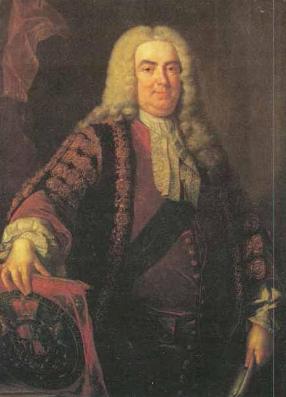poj3126 Prime Path bfs 广搜入门
Prime Path
| Time Limit: 1000MS | Memory Limit: 65536K | |
| Total Submissions: 25156 | Accepted: 13862 |
Description
 The ministers of the cabinet were quite upset by the message from the Chief of Security stating that they would all have to change the four-digit room numbers on their offices.
The ministers of the cabinet were quite upset by the message from the Chief of Security stating that they would all have to change the four-digit room numbers on their offices. — It is a matter of security to change such things every now and then, to keep the enemy in the dark.
— But look, I have chosen my number 1033 for good reasons. I am the Prime minister, you know!
— I know, so therefore your new number 8179 is also a prime. You will just have to paste four new digits over the four old ones on your office door.
— No, it’s not that simple. Suppose that I change the first digit to an 8, then the number will read 8033 which is not a prime!
— I see, being the prime minister you cannot stand having a non-prime number on your door even for a few seconds.
— Correct! So I must invent a scheme for going from 1033 to 8179 by a path of prime numbers where only one digit is changed from one prime to the next prime.
Now, the minister of finance, who had been eavesdropping, intervened.
— No unnecessary expenditure, please! I happen to know that the price of a digit is one pound.
— Hmm, in that case I need a computer program to minimize the cost. You don't know some very cheap software gurus, do you?
— In fact, I do. You see, there is this programming contest going on... Help the prime minister to find the cheapest prime path between any two given four-digit primes! The first digit must be nonzero, of course. Here is a solution in the case above.
1033The cost of this solution is 6 pounds. Note that the digit 1 which got pasted over in step 2 can not be reused in the last step – a new 1 must be purchased.
1733
3733
3739
3779
8779
8179
Input
One line with a positive number: the number of test cases (at most 100). Then for each test case, one line with two numbers separated by a blank. Both numbers are four-digit primes (without leading zeros).
Output
One line for each case, either with a number stating the minimal cost or containing the word Impossible.
Sample Input
3 1033 8179 1373 8017 1033 1033
Sample Output
6 7 0
题意:给出两个素数n,m。每次只能变化一位数字且每次变化后的数字也必须为素数,求变化的最小次数
其实是一个广搜的题,对每一位数字,如果有:
1.符合数据范围(1000<=x<10000)(四位数)
2.为素数
3.由上一个数字变化任意一位数得到
那么就可以把这个数列入下一个广搜的范围内
找到之后,输出即可
#include <iostream>
#include <algorithm>
#include <cstdlib>
#include <cstdio>
#include <queue>
#include <cstring>
#define INF 0x3f3f3f3f
#define For(i,n) for(int i=0;i<n;i++)
#define mem(a,b) memset(a,b,sizeof(a))
using namespace std;
typedef struct {
int n,step;
} Prime;
queue <Prime> a;
const int maxn = 1e4+5;
int prime[maxn];
int Used[maxn];
int m,n;
int ans;
const int Move[4] = {1,10,100,1000}; ///依次判断每一位数
const int Move1[2]= {1,-1}; ///判断加还是减
bool Juge(int x) { ///判断数据是否合法
return x>=1000&&x<10000&&!prime[x]&&!Used[x];
}
bool Jufe(int x,int t){ ///判断是否只改变了一个数字
int flag = 0;
while(x&&t){
if(x%10==t%10)
flag++;
x/=10;
t/=10;
}
return flag == 3;
}
void bfs(int x,int step) {
if(!a.empty())
a.pop();
if(x == m) {
ans = step;
return;
}
For(k,2)
For(j,4)
For(i,10){ ///从0-9对每一位进行遍历
int buf = x+i*Move[j]*Move1[k]; ///下一个数字,3个循环可以考虑到每一种变化
if(Jufe(buf,x))
if(Juge(buf)){ ///如果只改变龙一个数字且改变后数据合法
Prime T;
T.step = step+1;
T.n = buf;
a.push(T); ///那么符合条件的数入队
Used[buf] = x; ///同时将该数字标记避免被重复搜索
}
}
if(!a.empty())
bfs(a.front().n,a.front().step); ///搜索下一个
}
int main() {
int t;
for(int i=2; i*i<maxn; i++) ///素数打表
if(!prime[i])
for(int j = i*i; j<maxn; j+=i)
prime[j] = 1;
cin >> t;
while(t--) {
mem(Used,0);
while(!a.empty())
a.pop(); ///70-72初始化数据
cin >> n >> m;
bfs(n,0);
cout << ans << endl;
}
return 0;
}



